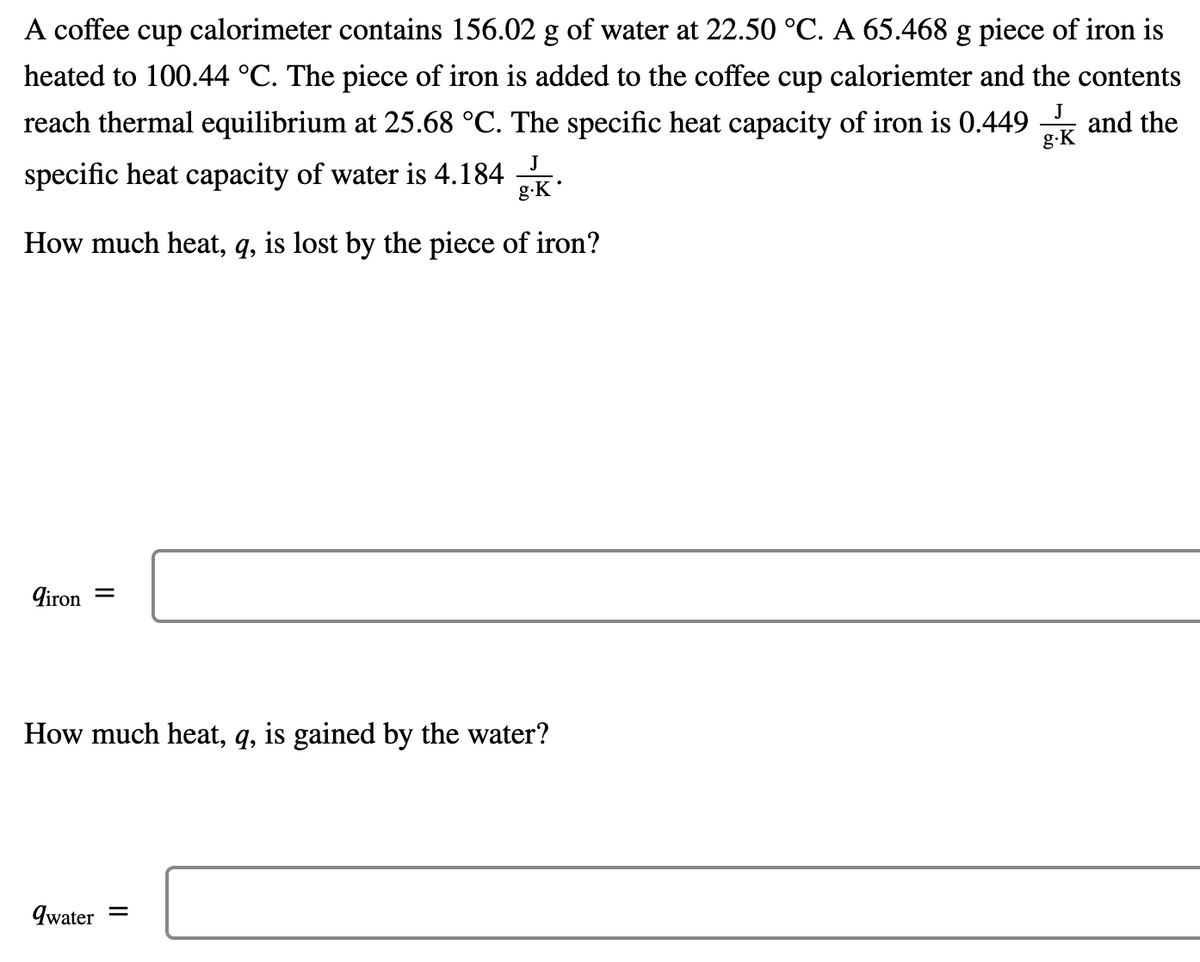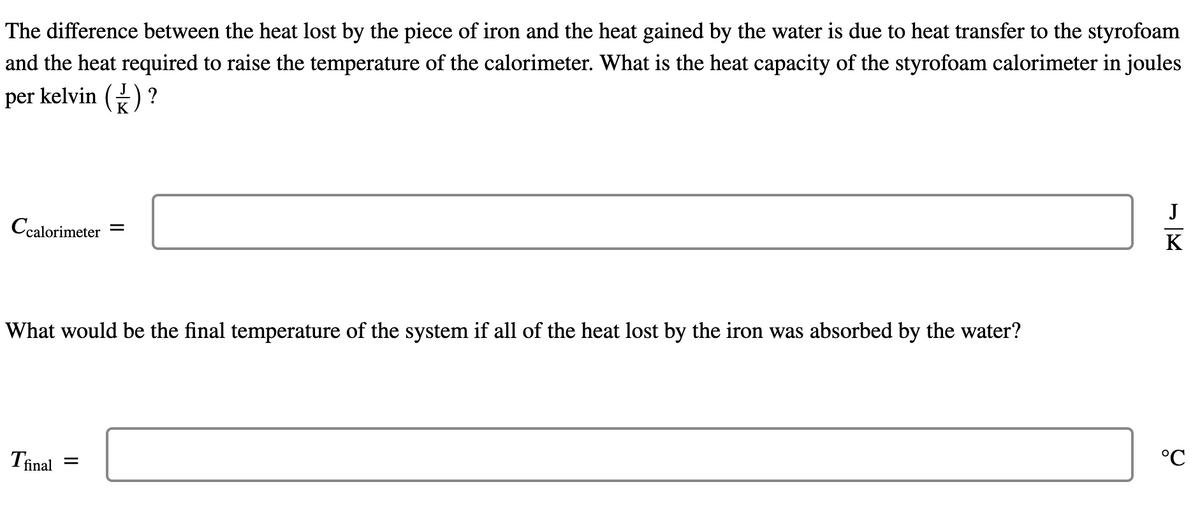A coffee cup calorimeter contains 156.02 g of water at 22.50 °C. A 65.468 g piece of iron is heated to 100.44 °C. The piece of iron is added to the coffee cup caloriemter and the contents reach thermal equilibrium at 25.68 °C. The specific heat capacity of iron is 0.449 J and the g-K specific heat capacity of water is 4.184 g.K How much heat, q, is lost by the piece of iron? Giron = How much heat, q, is gained by the water? 9water =
Thermochemistry
Thermochemistry can be considered as a branch of thermodynamics that deals with the connections between warmth, work, and various types of energy, formed because of different synthetic and actual cycles. Thermochemistry describes the energy changes that occur as a result of reactions or chemical changes in a substance.
Exergonic Reaction
The term exergonic is derived from the Greek word in which ‘ergon’ means work and exergonic means ‘work outside’. Exergonic reactions releases work energy. Exergonic reactions are different from exothermic reactions, the one that releases only heat energy during the course of the reaction. So, exothermic reaction is one type of exergonic reaction. Exergonic reaction releases work energy in different forms like heat, light or sound. For example, a glow stick releases light making that an exergonic reaction and not an exothermic reaction since no heat is released. Even endothermic reactions at very high temperature are exergonic.
Coffee cup caloriemeter homework..thanks


Trending now
This is a popular solution!
Step by step
Solved in 3 steps with 3 images









